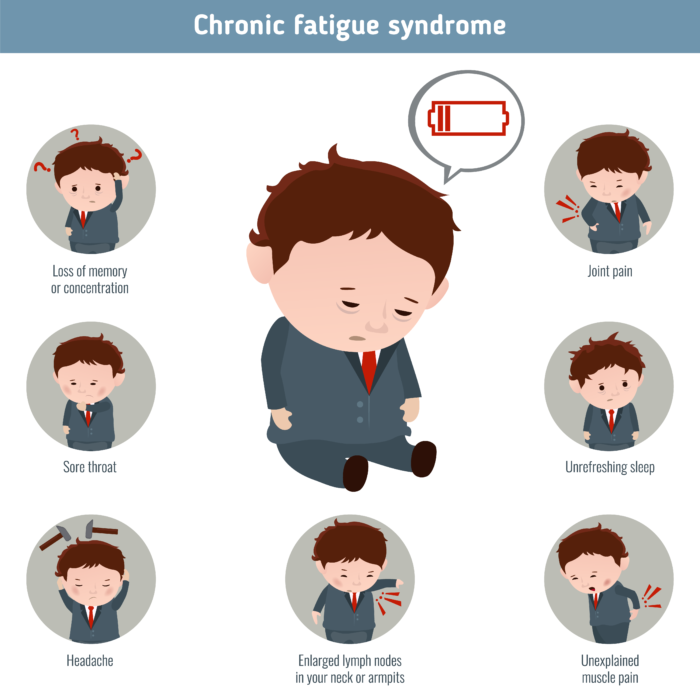Perplexing and bursting with information, fatigue in children is a multifaceted symptom that can stem from an array of factors. Recognizing the signs of exhaustion is imperative, especially when it’s chronic – as this could indicate an underlying health condition. A lethargic child may experience difficulty concentrating and performing mundane tasks, which inevitably impacts their overall quality of life.

Chronic fatigue in children is characterized by persistent weariness lasting weeks or months without reprieve despite rest. This type of fatigue can be insufferable and adversely affect a child’s physical, emotional, and social well-being. Parents must remain vigilant to any fluctuations in their child’s energy levels while seeking medical counsel if they suspect chronic fatigue.
The causes of fatigue vary from simple lifestyle factors such as lack of sleep or poor nutrition to more serious illnesses like asthma or viral infections. Common triggers for exhaustion include stress, anxiety, depression, allergies; even conditions such as anemia, thyroid problems & diabetes mellitus Type 1&2 are known culprits! Identifying the root cause(s) ultimately determines appropriate treatment options for your little one – knowledge is power!
Understanding Chronic Fatigue in Children: What It Means
The enigmatic condition of chronic fatigue in children is a perplexing state where the little ones feel drained and exhausted even after catching up on enough rest. The causes of this peculiar phenomenon are varied, ranging from asthma, anemia, to sleep apnea and dreadful ailments like Epstein-Barr virus infection. Detecting this symptom at its earliest stages can be crucial so that one can promptly identify the root cause and provide necessary treatment.

One of the most notorious culprits behind persistent fatigue in children is sleep apnea – a malevolent disorder that disrupts breathing during slumber resulting in poor quality sleep and daytime lethargy. If your child snores loudly or gasps for air while asleep, it’s vital to seek medical advice without delay.
Another potential trigger for relentless exhaustion among youngsters is viral infections such as Epstein-Barr virus- which can wreak havoc on their well-being. While most cases subside within days on their own accord, some may necessitate professional intervention if symptoms persist beyond two weeks or exacerbate over time. In case you observe any alarming signs such as high fever, difficulty breathing or severe headache coupled with tiredness- then seeking immediate medical attention for your offspring becomes non-negotiable!
Common Causes of Fatigue in Children: Identifying the Underlying Condition
The perplexing issue of fatigue in children has puzzled parents for generations. The underlying cause can be elusive, but its impact on a child’s health and well-being is unmistakable. Some potential culprits that contribute to this enigmatic condition include allergies, viruses, and chronic fatigue syndrome.
Allergies are notorious for triggering an immune response that leads to inflammation and exhaustion in children. Discovering the specific allergen through allergy testing or elimination diets may help unravel the mystery behind your child’s constant lethargy.
Infections caused by pesky viruses like Epstein-Barr virus (EBV) can also play a part in draining your child’s energy reserves. While most cases are mild, some instances could manifest as mononucleosis resulting in prolonged bouts of severe fatigue lasting weeks or even months. If your little one continues feeling depleted after recovering from such infections, it is vital to consult with a pediatrician immediately to rule out any serious complications.
Proper sleep hygiene should not be overlooked either as insufficient rest can often lead to weariness among kids. However, if slumber isn’t the root cause of persistent tiredness, seeking professional medical advice concerning other possible triggers becomes crucial without delay.\n
Health Conditions That Might Cause Fatigue in Children
The mysterious phenomenon of fatigue tends to afflict children with alarming frequency and can be attributed to a plethora of health conditions. One such culprit is the seemingly innocuous act of not getting enough sleep, which can wreak havoc on your child’s energy levels and potentially lead to other dire maladies. Thus, it becomes imperative that you ensure your little one gets the recommended hours of sleep each night in order to ward off exhaustion and its ilk. However, this is just the tip of the iceberg.
Behold! There are several medical conditions that could also contribute significantly towards symptoms of tiredness- from sleep apnea or other disorders related to slumbering habits – all adding fuel to this perplexing conundrum.
Enter mononucleosis (or mono as it is popularly referred), a viral infection so sinister that it threatens to render your child weak as a kitten for weeks or even months at end if left unchecked. Therefore, providing ample rest and hydration becomes critical in battling this malicious intruder.
But what if we told you there might be more malevolent forces at play here? Indeed, lethargy could be an ominous sign pointing towards grave illnesses like asthma or respiratory issues lurking beneath the surface. If your youngster appears persistently low-energy despite their stellar diet plans and sufficient nap-time arrangements, then perhaps seeking professional healthcare advice should become a top priority before matters spiral out of control.
The Role of Sleep: How Getting Enough Rest Can Help Your Child
The correct amount of sleep for a child is paramount to their overall health and well-being. A good night’s rest can leave your little one feeling refreshed, re-energized, and ready to tackle the day with gusto. Conversely, if your child consistently feels tired, they may struggle to concentrate in class or partake in activities that bring them joy.
Ensuring that your offspring gets enough shuteye requires you to delve into their sleeping habits. As per experts’ advice, school-going children need approximately 9-10 hours of sleep every night; younger ones may even require more than that! However, keep in mind that certain chronic illnesses like thyroid problems or colds can impact a child’s energy levels.
Besides helping them feel better during daytime hours, getting adequate sleep has been shown to boost academic performance and regulate kids’ emotions better. If you suspect your youngling isn’t catching enough zzz’s despite having regular bedtimes and routines at home – it might be time for a consultation with healthcare professionals who can rule out any underlying ailments causing this issue.
When to See a Healthcare Professional About Your Child’s Fatigue
Are you perplexed by your child’s persistent or worsening fatigue? It may be time to seek medical advice. While occasional tiredness is typical in children, chronic fatigue can signify an underlying health condition. Does your little one have trouble dozing off at night or staying awake during the day? This could indicate poor sleep habits that contribute to their exhaustion.
Iron deficiency is cited as one of the most common causes of fatigue in children, leading to decreased energy levels and difficulty concentrating throughout the day. Another potential perpetrator is Epstein-Barr virus or other viral infections that result in acute bouts of extreme exhaustion and weakness.
If you notice your youngster’s daytime sluggishness interfering with activities they typically enjoy or impacting school performance, seeking further evaluation from a pediatrician may be necessary. Remember that this information serves educational purposes only and should not replace professional medical advice from a qualified healthcare provider. When it comes to signs of serious illness in children, it’s always better to err on the side of caution.
Asthma, Sleep Apnea, and Other Respiratory Issues: How They Can Affect Your Child’s Energy Levels
The impact of respiratory issues like asthma and sleep apnea on your child’s energy levels can be quite perplexing. It’s not uncommon for these conditions to cause fatigue in children, especially if they’re not getting the quality sleep that their growing bodies require. If you observe any signs of shortness of breath or difficulty breathing during physical activity, it may be time to burst into action and seek the advice of a healthcare professional.
Viral infections are yet another culprit that could affect your child’s respiratory health and leave them feeling fatigued. If your little one has been under the weather for more than a week or two, don’t hesitate to act fast and ensure they receive proper medical attention. Inflammatory conditions such as pneumonia and bronchitis also pose a risk to respiratory health by causing problems that drain energy from your child.
Should you suspect any medical condition related to their respiratory health, waste no time contacting qualified professionals who specialize in pediatric care! Prompt treatment is crucial so that your young one can get back on track with their busy schedule without missing out on important developmental milestones. Encourage them always to stay hydrated by drinking plenty of water throughout the day; this supports healthy red blood cells transportation system which helps oxygenate vital organs promoting overall wellness while reducing feelings of fatigue following illness recovery periods.
Remember never ignore signs of serious illness because when it comes to your child’s well-being there should never be room for confusion!
Epstein-Barr Virus and Other Viral Infections: What You Need to Know About Their Impact on Your Child’s Health
Intriguingly, viral infections like the notoriously contagious Epstein-Barr virus (EBV) have been known to induce fatigue in children. Dubbed the “kissing disease,” EBV spreads through bodily fluids such as saliva and can lead to a myriad of symptoms including fever, sore throat, body aches, swollen lymph nodes and unsurprisingly, overwhelming exhaustion. While typically expressing themselves within 2-4 weeks with ample rest and hydration under one’s belt, some cases might require medical intervention from a clinician.
As much as we’d like to pigeonhole it all onto viral infections alone – let’s not be too hasty! Other factors could also come into play when dealing with children who are battling fatigue on the daily. For instance, boredom or lack of regular exercise may contribute significantly towards feelings of lethargy. Adolescents undergoing growth spurts may also experience fluctuations in their biological systems leading them down the path of endless weariness.
However – this is where things get tricky – if your child experiences persistent fatigue without any apparent reason for more than two weeks or shows signs of serious illness such as difficulty breathing or severe headaches along with fatigue then you must seek appropriate treatment from healthcare professionals stat!
On another note entirely; respiratory illnesses like influenza or pneumonia are notorious energy zappers that often tag along other pesky symptoms such as coughing and wheezing just for good measure. When fighting off these ailments that cause drowsiness galore – ensuring proper hydration levels becomes paramount while simultaneously getting enough rest takes center stage alongside prescribed medication by none other than your friendly neighborhood doctor.
Once this trifecta comes together seamlessly – voila! Your child will have just enough gusto for daily activities ranging from school work to playful endeavors without experiencing growing pains caused by unnecessary physical exertion during times when they should be resting instead…

